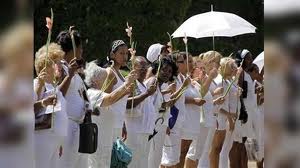
I arrived at the Matanzas prison known as ‘Aguica’ on April 29th. I was kept there in solitary confinement for 17 months. The Head of Penitentiaries applied a special regiment on us: family visits were only allowed every 3 months and could only last 2 hours, they only allowed 2 relatives and their underage children, the bag with food which was intended to keep us somewhat healthy had a limit of 30 pounds. Conjugal meetings were only allowed every 5 months and could not exceed 3 hours.
My time in ‘Aguica’ was always in The Polish Cell, located in the most rigorous of sections and which aimed to hold prisoners who were punished for disobedience, those who were sentenced to death, or those with life sentences. There were other members of the group of the 75 there. In ‘Aguica’, I lived the hardest days of my life, but I was also blessed because I met Miguel Galban, Alexis Rodriguez, Manuel Ulvas, and Roberto de Miranda, also victims of the crackdown of 2003.
In a matter of 7 years and 4 months, I learned of the dark side of humans, the misery of the heart always corrodes the conscience. The impunity and low level of education of the soldiers would always start quarrels between guards and prisoners. The soldiers would always win, while the latter suffered unimaginable punishments. With my own eyes, I saw men amputate their ears, cut their veins, pinch their eyes and go blind, cut of their hands and legs, swallow barbed wire, throw themselves from a third floor, and all with the intent of avoiding a beating by the guards.
The sad part of this story is that, in the majority of these self-inflictions, the ones suffering are demanding that their fundamental rights, which had been violated for years, be respected. Others grew sick in the nerves due to the rigorous conditions of captivity, while some would hurt themselves to end up in a hospital, where they could eat at least a little better.
Putting us together with common prisoners was a perverse tactic by the authorities. Fortunately, during those years I was able to shatter the plans of the ruling elite. Without intending it, the prisoners saw me as a shield to confront their oppressors and, with time, they [the common prisoners] ended up respecting our cause, with very few exceptions. In fact, there were even some policemen of lower ranking which defended political prisoners of conscience.
On the day which Cardinal Jaime Ortega informed me through the phone that I would be allowed to travel to Spain, I was shocked and it was difficult for me to speak. It was the end of a terrible nightmare which consumed me for years.
Now that the storm faded, I believe that if it had not been for my faith in God, the love of my country and love of my family, I could have not withstood such torture. I appreciate all that Spain and its people did, offering human warmth to me, despite the difficult financial crisis that country is going through. They lent me their hand, and I will never forget that, just like I will never forget my days behind bars.
To live in exile is difficult, and because of this, I admire the Cuban diaspora very much. Despite the hardships they may live on a daily basis, they never forget the political prisoners and they offer help to those who now arrive with nothing.
Cuba is physically missing from us, but it is still in the mind of this exile. What is true always lasts, and because of this, my cause does not fade, for it is the cause of those who aspire to achieve a better world.
4 April 2012
